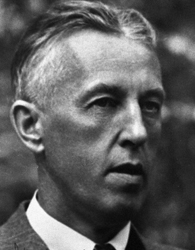In Buddhism there seems to be a lot of lists and steps and stages. We have the Three Principal Paths, the Ten Bodhisattva Bhumis, The Seven Step Method to achieving Bodhichitta, etc. There are also two other ways, besides the Three Principal Paths, to organize the realizations needed for enlightenment that are called the Five Paths and the Four Paths.
The Four Paths or Four Stages of Enlightenment are an organizing structure that is part of Theraveda teachings. The first path is stream-entry. The second path is a once-returner. The third path is a non-returner and the fourth path is an arahant or enlightened person. Sometimes people consider obtainment of first path, enlightenment, so you have to watch your terms.
I’ve been thinking about second path a lot lately. The task of the second path is ending all craving especially: 1) the desire for sensual pleasures and 2) the aversion towards unpleasant things. Although I have not had a direct experience of no-self (or emptiness), which some people consider a requisite for first path, I am intrigued by the possibility of ending all cravings.
It is clear to me that my gross cravings for my drug of choice are unpleasant, but I am becoming more and more aware that all of my subtler cravings are also tiring and useless. And, unfortunately it is most likely that these subtle cravings are in control of much of my behavior. How can I possibly get rid of them all?!
I was talking to Master Culadasa of the Dharma Treasure Buddhist Sangha about this just last month. First, the task of getting rid of cravings is a task of someone that has already achieved, and perhaps solidified, their first path position. It is not a task of someone in an earlier stage of spiritual development.
(Ahhhh, yes, I need to be able to walk before I can run and dance. Never mind that I feel ready to fly.)
Let’s take a peak into the future.
Once you get the realization that the only acceptable state of mind is one free from craving, Master Culadasa, says that you will then seek to eradicate craving by putting yourself into situations where it arises and turning your mindfulness on it. For instance, you go for ice cream and watch craving arise when you enter the store and as soon as you take the first bite you watch craving arise for the second bite, etc..
Now this is the opposite action that people with addiction are advised to do. In early recovery you want to avoid your drug of choice and the people, places and things associated with it in order to avoid uncontrollable cravings. Unfortunately, this can be very hard to do and it is not unheard of for people to relapse due to cravings arising from a trigger.
However, the idea of seeking out triggers when you have the proper support is an idea supported by the information in the Pharmacology of Addiction class I’m taking. If the sight of something associated with your drug use gives you cravings or a physiological change, then it is better to desensitize yourself before you encounter that something without support. This means actively putting yourself in situations that trigger cravings and not using – so the body can establish a new predictable reaction to the trigger.
In dog training language this is called extinguishing a behavior. Lets say your dog likes to bark and you don’t like the noise. The trick is to teach your dog to bark and consistently reward it whenever it does. Then, to extinguish the behavior all you need to do is never reward the dog again and the behavior will die out. However, if you are inconsistent and reward it one more time or intermittently, the behavior will persist, perhaps forever.
Once again we see that addictive cravings may be on the same continuum with regular everyday cravings given the same advice is offered to eliminate them. The idea is to not react when craving arises, but to turn mindfulness upon it. Mindfulness leads to wisdom and wisdom is the tool that cut all dysfunctional behavior.
I find that not feeding my cravings only makes them stronger: what I resists persists. This perhaps supports Master Culadasa’s point that the task of removing cravings is appropriate after first path has been reached. I feel like I am weak-willed, but the truth is I’m simply powerless to make the change at this stage. The power to make the change is given by the wisdom obtained in spiritual practice leading up to second path. Not only are we given power at that time, but also the motivation and desire to eradicate cravings.

